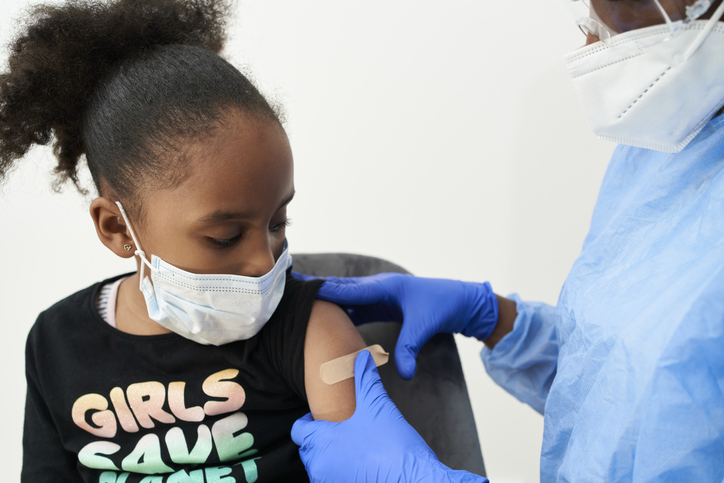
Source: aire images / Getty
Through the pandemic, the world has figured out how to do most things remotely. We can work remotely, socialize remotely, take workout classes remotely and even visit museums virtually. Here’s the thing: all of that is mostly for adults. Adults have the skills and focus to work remotely without suffering much if any damage to the quality of their output. Adults have the attention span to take a class online and they already have decades of in real life (IRL) socialization experience so they can do happy hour through a screen. Children, however, may need to socialize and learn in person – at school – to get the most out of their experiences.
The education system has been this massive roadblock to the country’s recovery from COVID-19 that nobody has known how to handle. America did the homeschooling thing for a while and it was likely the most emotionally and physically taxing experience parents will ever go through. Many parents were suddenly home schoolers and caretakers while working from home. All the while, children weren’t being socialized as they were used to and they weren’t taking in knowledge the way they do in a real classroom. So, kids were sent back in school and faced the other side of the miserable coin: children are more apt to pick up and spread germs and they couldn’t be vaccinated—until now. Parents and teachers alike have awaited the day and it finally came: The FDA approved the Pfizer vaccine for children ages five through 11. Here’s what you should know and how to talk to your kids about it.
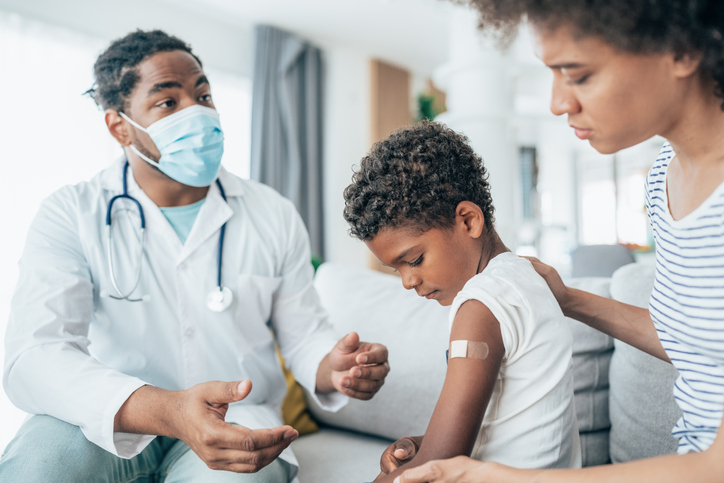
Source: filadendron / Getty
The Dose Is Lower
The Pfizer vaccine for children is much like that for adults in that it is a two-dose vaccine with the doses being administered three weeks apart. However, it differs from the adult one in that it is a lower dosage. The vaccine was tried on over 3,000 children and so far no serious side effects have been reported. What has been reported is that it is over 90 percent effective in preventing the spread of COVID-19 in children ages five to 11. Why this age group? Because children five through 11 make up for 39 percent of cases of COVID-19 in those ages 18 and younger, according to the FDA.
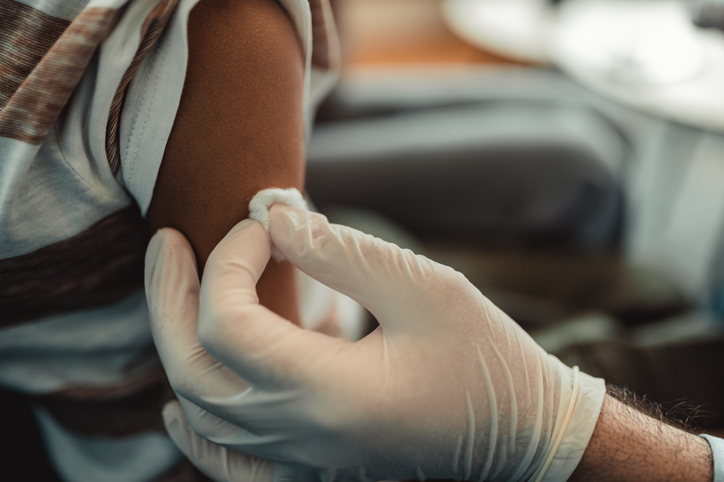
Source: MStudioImages / Getty
Researched Side Effects
Of the 3,100 children ages five through 11 who were given the vaccine, over 1,000 were observed closely for at least two months following their second dose and were not found to have serious side effects. The most common side effects reported are similar to those for adults such as pain at the injection sight, headache, fatigue, muscle ache and chills. Most side effects occur within two days of receiving the vaccine and subside within one to two days. Side effects have appeared to be more common following the second dose than the first one. Do tell your children in advance that if such side effects should occur, they are normal.
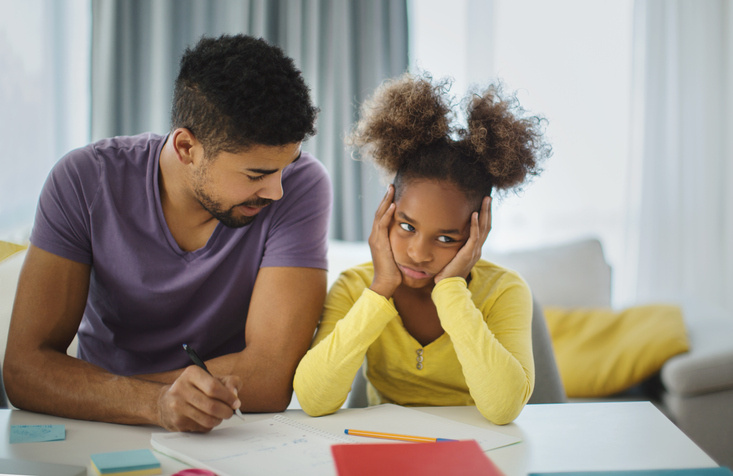
Source: Aja Koska / Getty
Remind Them They’ve Had Other Vaccines
Some children might be frightened at the idea of needles or of having anything injected into their bodies. The truth is that your child has most likely already received many vaccines – both those that they do and do not remember. Since birth they’ve likely been vaccinated for the measles, hepatitis, polio, tetanus, whooping cough and more. Informing them of this can show them that their body has already accepted many vaccines without issue. From what children of this age group can remember, they’ve likely received the flu vaccine each year, as well, which has very similar side effects to the COVID-19 vaccine. Remind them that this is something they’ve already overcome with previous vaccines.
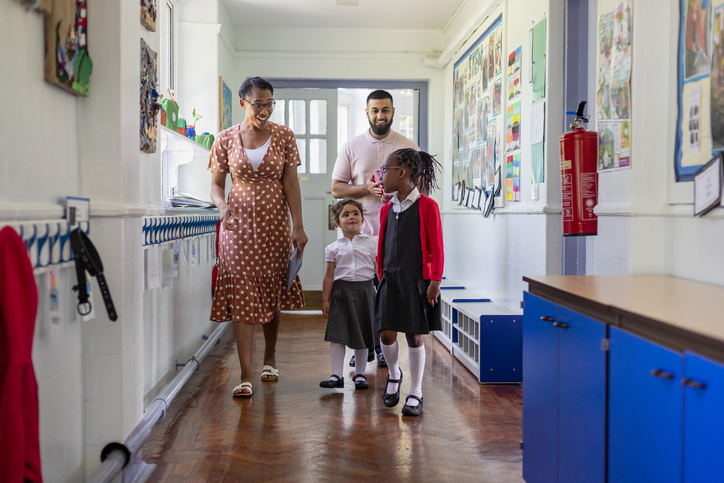
Source: SolStock / Getty
Ask What They’ve Heard
It can be valuable to ask children what they do and don’t know about the vaccine. They might have heard misinformation from teachers, peers, the Internet or other adults. In the same way you might ask children (when the time comes) what they already know about sex so you can dispel any myths, you should ask your kids what they already know about the COVID-19 vaccine. If they do believe in any misinformation, be prepared to address why is incorrect. You want to make sure your children have a clear understanding of the facts so they can have a positive outlook about the vaccine. Remember you can tell them that a piece of misinformation that a beloved adult like a teacher or babysitter gave them is wrong, without disrespecting that adult.
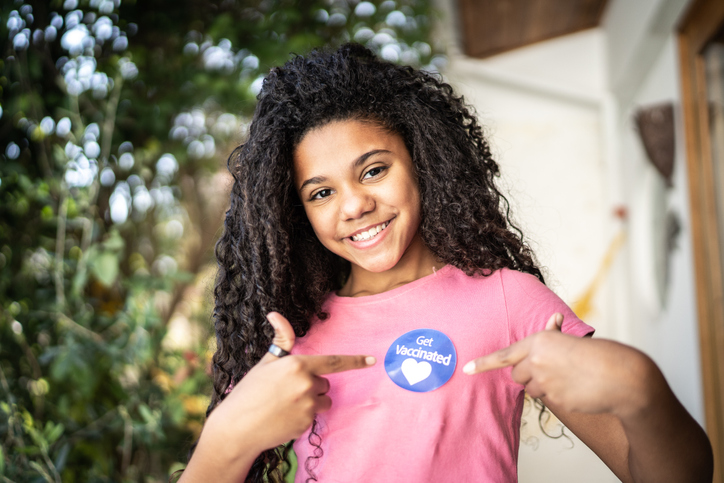
Source: FG Trade / Getty
Explain Vaccination Represents Freedom
Take the chance to walk down memory lane with your child and talk about all of the fun things they used to enjoy doing before the pandemic. Talk about some of the places they can go and people they can see once they are vaccinated. Perhaps being vaccinated will give them the freedom to finally visit an elderly relative or a loved one who has a weak immune system. Maybe it will create the freedom to travel again as a family. Make sure the language around this is celebratory, hopeful and generally very positive. Nurture a sense of excitement about what is on the other side of the vaccine.
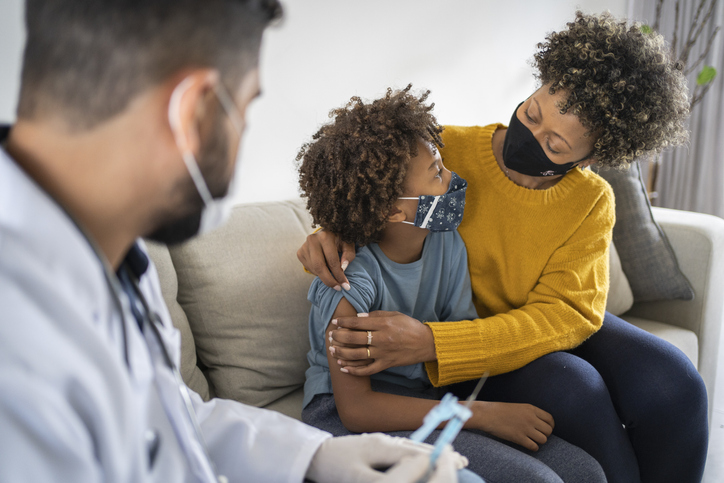
Source: Renata Angerami / Getty
Tell Them About Your Vaccination
You have one of the greatest tools at your disposal to help your kid feel comfortable about this change: your own vaccine story. If you are vaccinated, then you can show your child that you are living proof that the vaccine is safe. Tell your kid about your day getting vaccinated. Don’t skip any details. You can tell them about how nice your nurse was or about a joke a hospital staff member told you. You can tell them about the yummy lunch you treated yourself to after and the sense of relief you felt knowing that you were more protected against the COVID-19 virus. And you can tell them that the injection itself barely hurt and was over before you knew it.
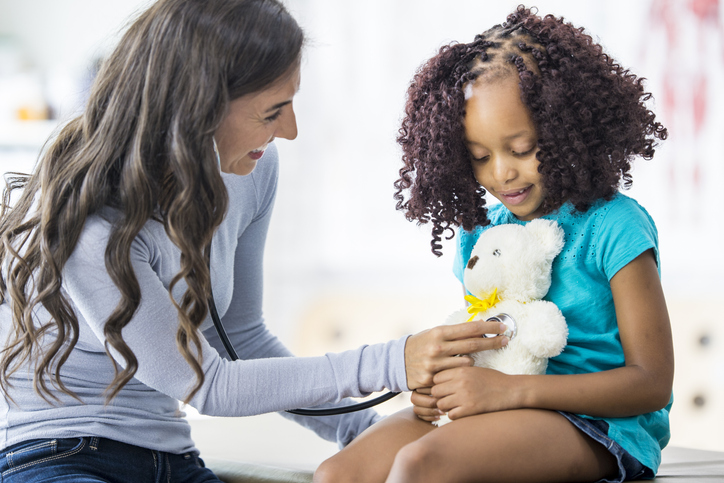
Source: FatCamera / Getty
Tell Them What They Can Expect
Walk your child through what they can expect. Children don’t like surprises when it comes to medical events. So tell them about the place you’ll be going, whether that’s a pharmacy, their primary doctor’s office or some other vaccination site. You can tell them about the nice décor there or the fun games they have for children in the waiting room. You can tell them about the questions the staff will ask them and that they will need to pull up their sleeve. Tell them you might need to stay there for 20 minutes or so after the vaccine is given just to make sure they feel okay – but that it is very unlikely that they won’t feel okay.
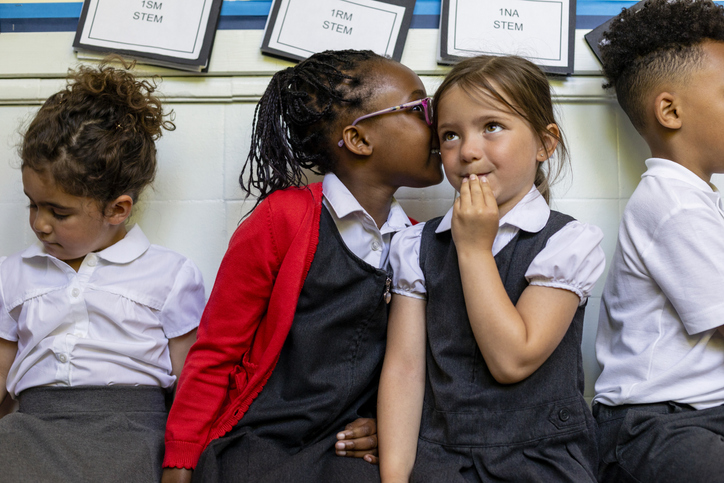
Source: SolStock / Getty
Prepare Them For Potential Drama
Once your child is vaccinated, they officially join the group of pro-vaxxers. Depending on where you live, there might be a significant number of anti-vaxxers at your child’s school. Your child might have friends whose parents do not believe in the vaccine and have turned their children against it. Prepare your child for the possibility that someone might say something negative to them about the vaccine.









